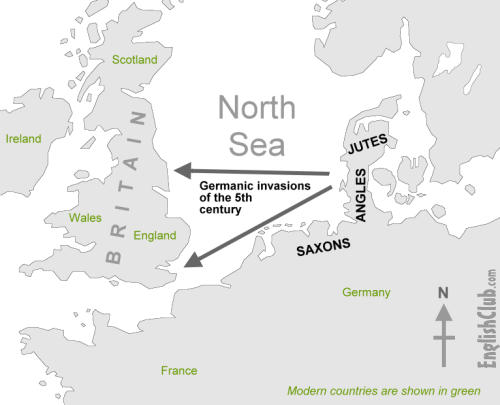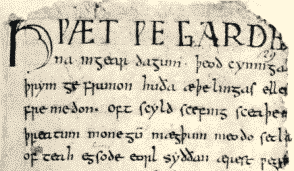December 28, 2009
The Magazine
Posted by ed_unp kediri at 1:39 PM 0 comments
December 26, 2009
Sunshine Magazine
~ Chief Editor
Labels: SunShine Magazine
Posted by ed_unp kediri at 3:10 PM 0 comments
November 16, 2009
Posted by ed_unp kediri at 10:27 AM 0 comments
November 14, 2009
Score Angk. 2009
Labels: Score Angk. 2009
Posted by ed_unp kediri at 11:30 AM 0 comments
Funny movies
Let's see this movies, very crazy you know.
yeaahhhh just for fun guys ^_^
Posted by ed_unp kediri at 12:01 AM 1 comments
November 13, 2009
Score Angk. 2008
Labels: Score Angk. 2008
Posted by ed_unp kediri at 11:09 PM 0 comments
Score Angk. 2007
Labels: Score Angk. 2007
Posted by ed_unp kediri at 11:09 PM 1 comments
Score Angk. 2006
Labels: Score Angk. 2006
Posted by ed_unp kediri at 11:05 PM 0 comments
Jenny
email : sunaku_kyouhei@yahoo.com
YM : sunaku_kyouhei
blog :
Labels: Administrator
Posted by ed_unp kediri at 9:28 PM 0 comments
MAHENDRA

e-mail : mahendra_puji@yahoo.com
YM : mahendra_puji
blog : www.adjiecreative.blogspot.com
Labels: Administrator
Posted by ed_unp kediri at 9:04 PM 0 comments
September 24, 2009
What is English?
History of the English Language
A short history of the origins and development of English
The history of the English language really started with the arrival of three Germanic tribes who invaded Britain during the 5th century AD. These tribes, the Angles, the Saxons and the Jutes, crossed the North Sea from what today is Denmark and northern Germany. At that time the inhabitants of Britain spoke a Celtic language. But most of the Celtic speakers were pushed west and north by the invaders - mainly into what is now Wales, Scotland and Ireland. The Angles came from Englaland and their language was called Englisc - from which the words England and English are derived.
Germanic invaders entered Britain on the east and south coasts in the 5th century.
Old English (450-1100 AD)
 Part of Beowulf, a poem written in Old English. |
Middle English (1100-1500)
 An example of Middle English by Chaucer. |
Modern English
What is English?
History of the English Language
A short history of the origins and development of English
The history of the English language really started with the arrival of three Germanic tribes who invaded Britain during the 5th century AD. These tribes, the Angles, the Saxons and the Jutes, crossed the North Sea from what today is Denmark and northern Germany. At that time the inhabitants of Britain spoke a Celtic language. But most of the Celtic speakers were pushed west and north by the invaders - mainly into what is now Wales, Scotland and Ireland. The Angles came from Englaland and their language was called Englisc - from which the words England and English are derived.
Map of Germanic invasions
Germanic invaders entered Britain on the east and south coasts in the 5th century.
Old English (450-1100 AD)
Example of Old English
Part of Beowulf, a poem written in Old English.
The invading Germanic tribes spoke similar languages, which in Britain developed into what we now call Old English. Old English did not sound or look like English today. Native English speakers now would have great difficulty understanding Old English. Nevertheless, about half of the most commonly used words in Modern English have Old English roots. The words be, strong and water, for example, derive from Old English. Old English was spoken until around 1100.
Middle English (1100-1500)
Example of Middle English
An example of Middle English by Chaucer.
In 1066 William the Conqueror, the Duke of Normandy (part of modern France), invaded and conquered England. The new conquerors (called the Normans) brought with them a kind of French, which became the language of the Royal Court, and the ruling and business classes. For a period there was a kind of linguistic class division, where the lower classes spoke English and the upper classes spoke French. In the 14th century English became dominant in Britain again, but with many French words added. This language is called Middle English. It was the language of the great poet Chaucer (c1340-1400), but it would still be difficult for native English speakers to understand today.
Modern English
Early Modern English (1500-1800)
Example of Early Modern English
Hamlet's famous "To be, or not to be" lines, written in Early Modern English by Shakespeare.
Towards the end of Middle English, a sudden and distinct change in pronunciation (the Great Vowel Shift) started, with vowels being pronounced shorter and shorter. From the 16th century the British had contact with many peoples from around the world. This, and the Renaissance of Classical learning, meant that many new words and phrases entered the language. The invention of printing also meant that there was now a common language in print. Books became cheaper and more people learned to read. Printing also brought standardization to English. Spelling and grammar became fixed, and the dialect of London, where most publishing houses were, became the standard. In 1604 the first English dictionary was published.
Late Modern English (1800-Present)
The main difference between Early Modern English and Late Modern English is vocabulary. Late Modern English has many more words, arising from two principal factors: firstly, the Industrial Revolution and technology created a need for new words; secondly, the British Empire at its height covered one quarter of the earth's surface, and the English language adopted foreign words from many countries.
Varieties of English
From around 1600, the English colonization of North America resulted in the creation of a distinct American variety of English. Some English pronunciations and words "froze" when they reached America. In some ways, American English is more like the English of Shakespeare than modern British English is. Some expressions that the British call "Americanisms" are in fact original British expressions that were preserved in the colonies while lost for a time in Britain (for example trash for rubbish, loan as a verb instead of lend, and fall for autumn; another example, frame-up, was re-imported into Britain through Hollywood gangster movies). Spanish also had an influence on American English (and subsequently British English), with words like canyon, ranch, stampede and vigilante being examples of Spanish words that entered English through the settlement of the American West. French words (through Louisiana) and West African words (through the slave trade) also influenced American English (and so, to an extent, British English).
Today, American English is particularly influential, due to the USA's dominance of cinema, television, popular music, trade and technology (including the Internet). But there are many other varieties of English around the world, including for example Australian English, New Zealand English, Canadian English, South African English, Indian English and Caribbean English.
The Germanic Family of Languages
Chart of the Germanic family of languages
English is a member of the Germanic family of languages.
Germanic is a branch of the Indo-European language family.
A brief chronology of English
BC 55 Roman invasion of Britain by Julius Caesar. Local inhabitants speak Celtish
BC 43 Roman invasion and occupation. Beginning of Roman rule of Britain.
436 Roman withdrawal from Britain complete.
449 Settlement of Britain by Germanic invaders begins
450-480 Earliest known Old English inscriptions. Old English
1066 William the Conqueror, Duke of Normandy, invades and conquers England.
c1150 Earliest surviving manuscripts in Middle English. Middle English
1348 English replaces Latin as the language of instruction in most schools.
1362 English replaces French as the language of law. English is used in Parliament for the first time.
c1388 Chaucer starts writing The Canterbury Tales.
c1400 The Great Vowel Shift begins.
1476 William Caxton establishes the first English printing press. Early Modern English
1564 Shakespeare is born.
1604 Table Alphabeticall, the first English dictionary, is published.
1607 The first permanent English settlement in the New World (Jamestown) is established.
1616 Shakespeare dies.
1623 Shakespeare's First Folio is published
1702 The first daily English-language newspaper, The Daily Courant, is published in London.
1755 Samuel Johnson publishes his English dictionary.
1776 Thomas Jefferson writes the American Declaration of Independence.
1782 Britain abandons its American colonies.
1828 Webster publishes his American English dictionary. Late Modern English
1922 The British Broadcasting Corporation is founded.
1928 The Oxford English Dictionary is published.
Labels: English Articles
Posted by ed_unp kediri at 9:10 PM 0 comments
September 03, 2009
Lecturers of English Department
- TEYL 1
- APPLIED LINGUISTICS
- LANGUAGE TESTING 1
- WRITING III
- SPEAKING 1
- SPEAKING II
- LANGUAGE TESTING I
- TOURISM
- READING III
- CROSS CULTURE UNDERSTANDING
- LISTENING III
- PSYCHO. LINGUISTICS
- GRAMMAR II
- LANGUAGE RESEARCH I
- LANGUAGE RESEARCH II
- TOEFL
- READING I
- READING II
- WRITING IV
- STATISTICS
- IT FOR TEACHING
- LANGUAGE TESTING I
- SPEAKING III
- SPEAKING IV
- ENGLISH PHONOLOGY
- PRONUNCIATION PRACTICE
- EXT. SPEAKING I
- EXT. SPEAKING II
- ENGLISH MORPHOSYNTAX
- SEMANTICS
- INTRO TO LINGUISTICS
- TUTORIAL
- GRAMMAR IV
- GRAMMAR V
- TRANSLATION
- ESP
- TEFL I
- TEFL II
- KURIKULUM DAN BUKU TEKS
- READING IV
- KUR. MAT. DEV. I
- KUR. MAT. DEV. II
- GRAMMAR I
- GRAMMAR II
- LISTENING I
- LISTENING II
- SLA
- INTRO TO LITERATURE
- WRITING I
- WRITING II
- VOCABULARY
- PSYCHOLINGUISTICS
- TEFL II
- GRAMMAR 1
- KUR. MAT. DEV. II
- INTRO TO LINGUISTICS
- FILSAFAT ILMU
- KE-PGRI-AN
- ENTREPRENEURSHIP
- AGAMA ISLAM
to be continued
Labels: Announcement, Lecturer
Posted by ed_unp kediri at 3:53 PM 0 comments
June 23, 2009
TINGKAT 1:
Selasa, 7 Juli 2009:
- Bhs. Indonesia
- Ke PGRI an
Senin, 13 Juli 2009:
- Perk Pes. Didik
- Profesi Pendidikan
Rabu, 15 Juli 2009:
- Reading II
- Writing II
Senin, 20 Juli 2009:
- E. Phonology *
- Grammar II
Rabu, 22 Juli 2009:
- Listening II *
- Speaking II *
Tanda* Dilaksanakan diluar jadwal ini/diatur tersendiri
Posted by ed_unp kediri at 3:12 PM 0 comments
JADWAL UJIAN AKHIR SEMESTER GENAP
TAHUN AKADEMIK 2008/2009
TINGKAT 1:
TINGKAT 2:
TINGKAT 3:
TINGKAT 4:
Posted by ed_unp kediri at 3:08 PM 0 comments
Jadwal Ujian Semester Genap Tahun akademik 2009/2010
Jadwal Ujian Semester Genap Tahun akademik 2009/2010
Jadwal Ujian Semester
Download Jadwal Ujian Semester Genap Tahun akademik 2009/2010 klik di sini : Jadwal Ujian Semester Genap Tahun akademik 2009/2010
Labels: Announcement
Posted by ed_unp kediri at 11:21 AM 0 comments
June 22, 2009
Jadwal Kuliah Semerter Ganjil 2009/2010
Lihat jadwal mata Kuliah Semester ganjil 2009/2010 klik di sini
Download jadwal mata kuliah semester ganjil 2009/2010 klik : download
Jadwal Semester Ganjil 2009
Labels: Announcement
Posted by ed_unp kediri at 10:04 AM 0 comments
June 18, 2009
June 17, 2009
We have Exam too..
"Here is Tanjung Benoa..There are lot of domestic tourist here..
bla..bla..bla.."
Lily had a exam with Mrs.Khoiriah
Posted by ed_unp kediri at 12:55 PM 0 comments
MeMories in BaLi....

Labels: Bali
Posted by ed_unp kediri at 11:18 AM 0 comments


















































